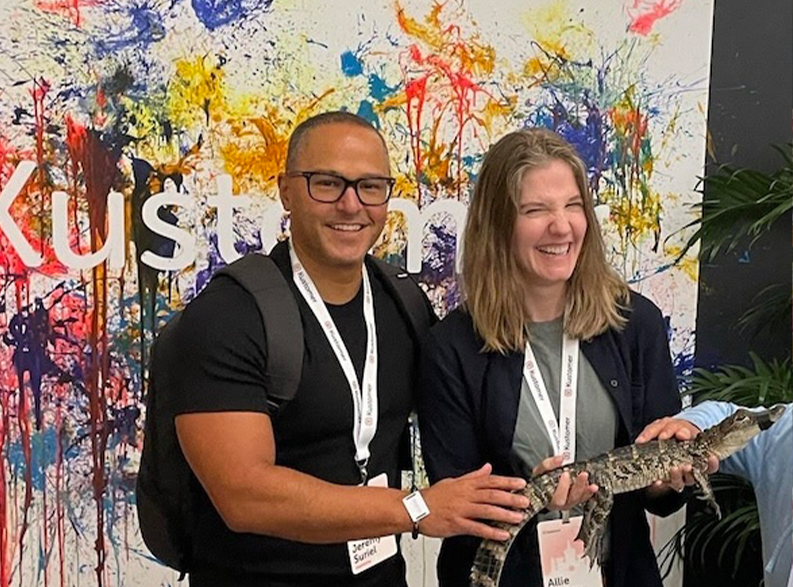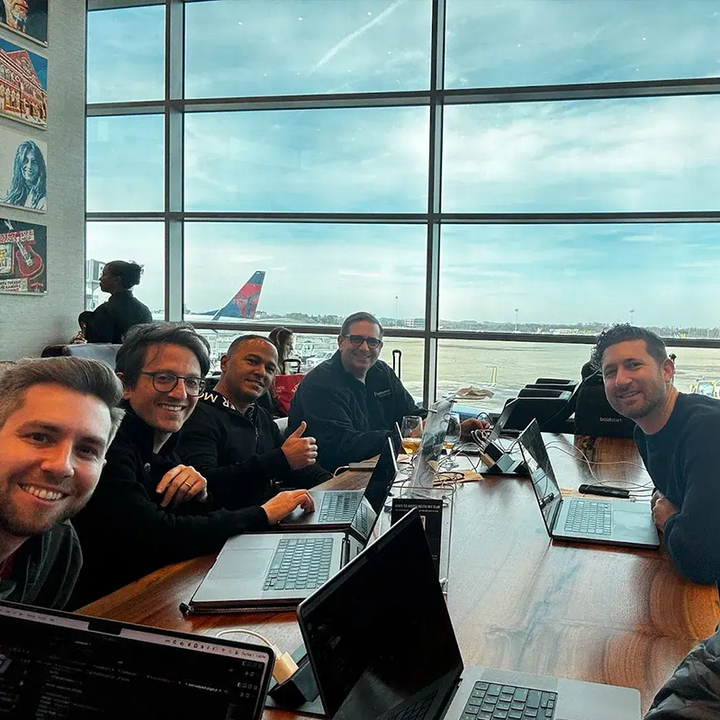A company’s values can provide insights into work culture, hiring practices and more — but first, colleagues need to be ready to put those values to work. According to Harvard Business Review, creative, distinctive and memorable values are more likely to be acted upon.
At Kustomer, one of the creative, distinctive and memorable values is “skrappy.” It’s an approach that drives the company’s product development practices.
“Being ‘skrappy’ means we always operate with a startup mindset — staying agile, innovative and unafraid to challenge the status quo,” Chief Technology Officer and Co-Founder Jeremy Suriel said. “This allows us to move quickly, iterate constantly and deliver industry-first solutions.”
“Being ‘skrappy’ means we always operate with a startup mindset.”
This focus on adaptability has enabled the company to develop tools like its AI-native platform and usage-based pricing model, both of which aim to address real challenges faced by businesses — which recently led to the launch and development of AI Agents.
As a customer service platform focused on AI-driven solutions, Kustomer has introduced AI Agents as a new feature aimed at improving how businesses engage with their customers. The AI Agents are fully integrated into the platform and allow businesses to create and manage both virtual and phone (AI voice) customer support teams through the AI Agent Studio.
Suriel explained that these AI-powered Agents are designed to handle a wide range of tasks.
“They deliver intelligent, proactive and personalized customer service,” he said. “They can handle a wide range of tasks, from resolving routine inquiries to assisting human Agents with complex cases, ensuring faster and more accurate responses.”
By tailoring tools to meet client expectations, the platform seeks to make customer support more efficient and personalized.
“We’re not tied to legacy thinking; we embrace bold ideas that solve real problems for our customers,” Suriel said. “Being customer obsessed means that everything we create is rooted in our commitment to understanding and exceeding customer expectations. We actively listen to our clients’ challenges, and products incorporating AI Agents and AI Voice are designed to deliver effortless, personalized support that defines amazing service.”
With AI Agents, Kustomer provides businesses with a tool to streamline support and improve response times while balancing automation and human interaction.
Kustomer's Values
- Culture adaptors
- Customer obsessed
- Skrappy
- Be open
- One Krew
- Continuous improvement over delayed perfection
- Win with data
- DJTAIBAI — Don't just talk about it, be about it
We saw an opportunity to reimagine customer service by making AI a foundational element of the platform. This approach allows us to eliminate the friction caused by outdated tools and pricing models, such as seat-based licenses and replace them with a seamless, pay-for-what-you-use system. The rise of this product is also driven by increasing customer expectations for fast, personalized and always-available support. Businesses need tools that enable them to meet these demands while controlling costs and scaling operations effortlessly.
“The rise of this product is also driven by increasing customer expectations for fast, personalized and always-available support.”
What tools or technologies did your team use to build the product and why?
Working with a small dedicated team, we went into stealth mode earlier this year to focus solely on our new AI launch. We took advantage of our hybrid work space in NYC and relied on both in-person and remote collaboration. We leveraged a mix of new technologies and patterns — including golang for high performance back-end processing, monorepo for increased engineering velocity — and built a large language model-agnostic platform leveraging OpenAI and AWS Bedrock generative AI models.
As a veteran of the customer support industry, I can say the most exciting and innovative times are truly ahead of us. We’ve only begun to tap the long-term benefits of AI for our customers, and anyone joining us now is getting the mix of an established leadership team, category expertise and tons of white space to innovate as we continue to disrupt the industry.

What obstacles did you encounter along the way? How did you successfully overcome them?
As this new product rolled out into private beta and through general availability, we gathered feedback and needed to respond quickly to maximize the success of the implementation. There was a bit of education and messaging required both internally and externally to understand some of the new concepts around AI Agents as well as to gain the trust from clients in testing out the new functionality with their customers. There was a strong level of communication and collaboration established across the product, engineering and implementation teams involved and buffers built into the roadmap in order to address the feedback we would receive.
What teams did you collaborate with to get this across the finish line? What strategies did you employ to ensure that cross-functional collaboration went smoothly?
This was truly an all-company project as we were launching our new brand and pricing at the same time. We closely collaborated with every single department — in the day-to-day we were often ‘in the trenches’ with the Voice team as well as the Platform team on tasks and routing support within AI Agents. We regularly took advantage of in-person collaboration in our hybrid space especially with the product team in terms of white boarding and walking through examples live. On the engineering front, everyone had a lot of ownership over the outcome, and every voice was heard to reach the solution.







